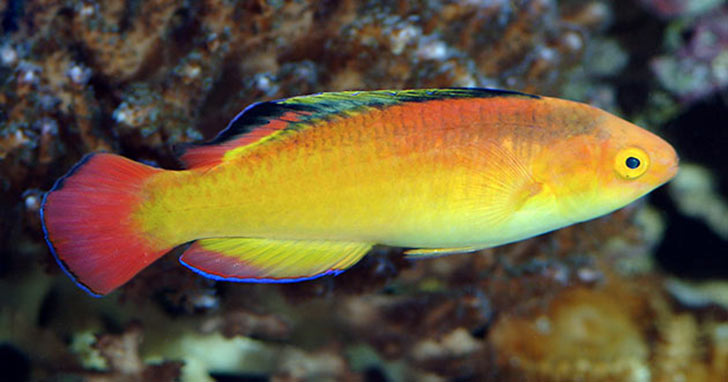
As important as cycling your new aquarium is, it is equally vital to keep water parameters at proper levels and help prevent stress to your fish. Stress due to fluctuating water conditions is one of the main causes of fish illness and death.
Regular testing of specific water parameters (and fixing the problem) can prevent more serious problems from happening, including fish sickness, fish loss, algae overgrowth, parasite infestation, and other unhealthy conditions. It is especially important to do regular testing for certain conditions in your aquariums whether freshwater or marine.
FRESHWATER & MARINE AQUARIUMS
The most common parameters to measure include:
TEMPERATURE The temperature of your aquarium plays a vital role in the health of your fish. Fish are very sensitive to temperature changes and any sudden temperature change can wreak havoc on your fish.
pH pH is a measurement of acidity or alkalinity in your water. Maintaining an appropriate pH level for your specific aquarium inhabitants is vital for their health.
AMMONIA Testing for ammonia is a must. Ammonia is extremely toxic and causes problems ranging from gill damage to even fish death. If you have any detectable ammonia, take steps to correct it immediately.
NITRITE An elevation of nitrite is an indication that there may be problems with your biological filtration. High nitrite levels can quickly lead to fish death. Even at low levels nitrite can suppress fish immune systems.
NITRATE Although nitrate is not as toxic as ammonia or nitrite, it must be monitored to avoid fish stress. Elevated levels of nitrate can also contribute to conditions favorable to aggressive nuisance algae growth.
ALKALINITY Also called carbonate hardness, alkalinity plays a vital role in stabilizing and buffering aquarium pH.
MARINE AQUARIUMS ONLY
In addition to the parameters listed above, the following parameter is essential when testing your saltwater aquariums.
SPECIFIC GRAVITY Specific gravity measures the relative salinity (amount of dissolved salts) in your aquarium water in comparison to pure water. Measuring specific gravity on a regular basis is crucial to maintain the ideal environment for your marine inhabitants.
See the table below for acceptable levels of these parameters for different marine aquariums.
|
Question:
What is a Refractometer? |
Answer:
A Refractometer measures salinity and/or specific gravity of aquarium water based upon its refractive index. It is a precise, optical instrument that is very accurate and easy to use. |
ACCEPTABLE PARAMETERS FOR FRESHWATER AQUARIUMS
| |
Temperature |
pH |
Ammonia
(NH3) |
Nitrite
(NO2) |
Nitrate -
Nitrogen (NO3) |
Freshwater
Community |
72-82°F |
6.5-7.5 |
0.0 |
0.0 |
< 50 ppm |
| African Cichlid |
72-82°F |
7.8-8.5 |
0.0 |
0.0 |
< 50 ppm |
Freshwater Plants
& Discus |
76-86°F |
6.0-7.5 |
0.0 |
0.0 |
< 30 ppm |
|
ACCEPTABLE PARAMETERS FOR MARINE AQUARIUMS
| |
Temperature |
pH |
Specific
Gravity |
Alkalinity
(carbonate
hardness) |
Ammonia
(NH3) |
Nitrite
(NO2) |
Nitrate
(NO3) |
| Reef |
72-78°F |
8.1-8.4 |
1.023-1.025 |
8-12 dKH |
0.0 |
0.0 |
< 1.0 ppm |
| FOWLR |
72-78°F |
8.1-8.4 |
1.020-1.025 |
8-12 dKH |
0.0 |
0.0 |
< 30 ppm |
|
RECOMMENDED PRODUCTS
|